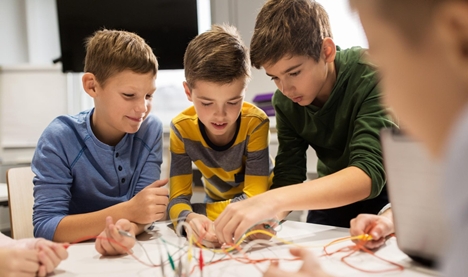
Helping Your Child Thrive in Group Projects: Collaboration Skills for the Future
Group projects are an integral part of modern education, designed not only to test knowledge but also to build interpersonal skills. They prepare children for a future where teamwork and collaboration are valued as much as individual expertise. For many children, however, working with peers can be challenging. Some may dominate, while others may hesitate to participate. Parents have a vital role in guiding their children to understand the importance of collaboration, sharing responsibility, and contributing meaningfully. By nurturing these skills at home, parents can equip their children with habits that will serve them well throughout life.
Why Collaboration Matters
Collaboration is more than just working together; it is about listening, respecting differences, and achieving common goals. In today’s interconnected world, workplaces demand teamwork across cultures and disciplines. Group projects at school introduce children to these dynamics early on, teaching them how to contribute ideas, negotiate disagreements, and accept constructive feedback. Such skills not only enhance academic performance but also shape confident, empathetic individuals ready for the challenges of the future.
Encouraging Active Participation
One of the biggest hurdles in group projects is ensuring equal participation. Some children may shy away from speaking, while others may try to take over. Parents can support their child by encouraging balanced involvement. Practising conversations at home, role-playing group scenarios, or discussing the value of sharing ideas helps children gain confidence. Active participation teaches them that every contribution counts, no matter how small, and that success is collective rather than individual.
| Challenge | Impact on Group Work | Parental Guidance |
|---|---|---|
| Reluctance to Speak | Ideas remain unheard, confidence dips | Encourage open discussions at home, practise expression |
| Over-Dominance | Creates imbalance, discourages peers | Teach listening skills and respect for others’ inputs |
| Lack of Responsibility | Tasks remain incomplete or fall to others | Instil accountability by assigning small daily duties |
| Conflicts | Reduces group efficiency | Guide in handling disagreements calmly and fairly |
Developing Communication Skills
Clear communication is at the heart of collaboration. Parents can encourage children to express thoughts with clarity and listen attentively to others. Simple practices like narrating daily experiences, debating friendly topics, or storytelling improve articulation. Equally important is active listening, where children learn not to interrupt but to understand others before responding. These communication habits translate directly into smoother teamwork and respectful interactions during group assignments.
Teaching Responsibility and Accountability
Group projects succeed when every member fulfils their role. Parents can reinforce this by assigning responsibilities at home and following up consistently. Tasks such as managing a small household chore or completing a reading goal within a set time teach accountability. When children learn that their contribution affects the outcome for everyone, they become more reliable and committed in group settings. Responsibility also builds trust, a key element of any successful collaboration.
Promoting Problem-Solving and Flexibility
Disagreements and unexpected hurdles are natural in group work. Instead of avoiding conflicts, children should learn how to resolve them constructively. Parents can guide by discussing possible solutions to everyday challenges and encouraging flexibility in approach. Teaching children to compromise, adapt, and focus on solutions rather than problems builds resilience. These experiences prepare them for real-world teamwork where flexibility often determines success.
| Skill | How It Is Built at Home | Impact in Group Projects |
|---|---|---|
| Communication | Storytelling, open conversations, debates | Clear sharing of ideas, effective collaboration |
| Responsibility | Chores, personal tasks, self-monitoring | Reliable contribution to assigned project roles |
| Flexibility | Adapting to changes in routines or plans | Smoother conflict resolution, better adaptability |
| Empathy | Discussing feelings, valuing perspectives | Stronger peer relationships and cooperation |
Balancing Leadership and Team Spirit
While leadership is an important skill, group projects also demand the ability to follow and support. Parents can help children understand that leadership is not about control but about guiding with fairness and encouraging participation. At the same time, being a good team member involves respecting leaders and supporting collective goals. Striking this balance ensures that children can adapt to different roles within a group, whether as a leader or collaborator.
Conclusion
Group projects are more than academic tasks; they are training grounds for life skills. By supporting children in developing communication, responsibility, flexibility, and empathy, parents prepare them for future challenges that extend far beyond the classroom. Thriving in group projects teaches children that success is rarely an individual effort but a shared journey. With these skills, they grow into confident collaborators ready to contribute meaningfully to the world around them.
 (1).png)